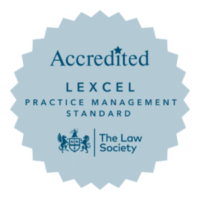Lasting Power of Attorney: What is an LPA, and why should I consider making one?
15th Jul 2025
When planning for the future, you might have heard of or considered making a Lasting Power of Attorney. Whether you’re planning your affairs or thinking about the affairs of a loved one, making an LPA now could save a great deal of stress and uncertainty later.
What is a Lasting Power of Attorney?
A Lasting Power of Attorney (LPA) is a legal document that allows you, the donor to appoint an individual, or individuals that you trust (attorney(s)) to make decisions on your behalf if you ever lose the capacity to do so yourself.
There are two types of LPA:
- Property and Financial Affairs – lets your attorney, or attorneys, manage your financial and property affairs, such as managing your bank account and paying bills. These can take effect as soon as they are registered, or you can decide for it to take effect only if you lose capacity.
- Health and Welfare – this can only be used if you lose mental capacity. It gives your attorney(s) the power to make decisions about matters such as your healthcare and living arrangements.
Why should you set up an LPA, and who should you appoint?
Life can be unpredictable, and if you are ever in the situation when you are without capacity and without an LPA, your family and loved ones may face a lengthy and potentially costly legal process through the Court of Protection to act on the behalf. Making an LPA also provides you with the peace of mind that your wishes are clearly set out in advance. You can choose to notify your loved ones and/or a trusted professional, such as your GP, that you have an LPA in place.
When appointing an attorney for your LPA, it should be somebody that you completely trust with your affairs. You can appoint multiple attorneys can specify whether they are able to act together (jointly) or independently (jointly and severally). They can be a friend, family, or professional. The person you chose must be over 18 and mentally capable. For property and financial affairs LPA’s, they must also be not bankrupt.
The process
- Choose your attorney(s) – Think carefully about who might be suitable for the role, and speak to them about your decision beforehand.
- LPA forms are drafted – We can take instructions and draft your LPA forms on your behalf. A certificate provider is needed to confirm that you understand the decision you are making, which must be someone who is not an attorney or donor. One of our experts will be able to act as certificate provider if you wish to instruct us.
- LPA is registered – The LPA must then be registered with the Office of the Public Guardian (OPG). This process can take up to 20 weeks. If you are making both a health and welfare LPA and property and financial affairs LPA, you can apply to register both at the same time.
- LPA fee is paid – The fee to register an LPA with the OPG is currently £82 per LPA. In some cases, an applicant may qualify for an exemption or reduced fee.
How we can help
We are well-positioned to help clients make clear, legally sound LPAs that are tailored to your needs. We can guide you through every stage and ensure your forms are complete and registered correctly.
If you would like to enquire further about making an LPA, please contact us via 01761 414646, or enquires@th-law.co.uk, and one of our experts will be able to assist.
Related news
Articles you may find useful
Like this article? Sign up for our regular newsletters





